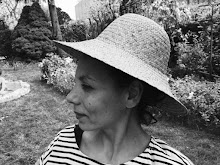The Poet and the World [excerpt]
This is why I value that little phrase "I don't know" so highly. It's small, but it flies on mighty wings. It expands our lives to include the spaces within us as well as those outer expanses in which our tiny Earth hangs suspended. If Isaac Newton had never said to himself "I don't know," the apples in his little orchard might have dropped to the ground like hailstones and at best he would have stooped to pick them up and gobble them with gusto. Had my compatriot Marie Sklodowska-Curie never said to herself "I don't know", she probably would have wound up teaching chemistry at some private high school for young ladies from good families, and would have ended her days performing this otherwise perfectly respectable job. But she kept on saying "I don't know," and these words led her, not just once but twice, to Stockholm, where restless, questing spirits are occasionally rewarded with the Nobel Prize.
Poets, if they're genuine, must also keep repeating "I don't know." Each poem marks an effort to answer this statement, but as soon as the final period hits the page, the poet begins to hesitate, starts to realize that this particular answer was pure makeshift that's absolutely inadequate to boot. So the poets keep on trying, and sooner or later the consecutive results of their self-dissatisfaction are clipped together with a giant paperclip by literary historians and called their "oeuvre" ...
I sometimes dream of situations that can't possibly come true. I audaciously imagine, for example, that I get a chance to chat with the Ecclesiastes, the author of that moving lament on the vanity of all human endeavors. I would bow very deeply before him, because he is, after all, one of the greatest poets, for me at least. That done, I would grab his hand. "'There's nothing new under the sun': that's what you wrote, Ecclesiastes. But you yourself were born new under the sun. And the poem you created is also new under the sun, since no one wrote it down before you. And all your readers are also new under the sun, since those who lived before you couldn't read your poem. And that cypress that you're sitting under hasn't been growing since the dawn of time. It came into being by way of another cypress similar to yours, but not exactly the same. And Ecclesiastes, I'd also like to ask you what new thing under the sun you're planning to work on now? A further supplement to the thoughts you've already expressed? Or maybe you're tempted to contradict some of them now? In your earlier work you mentioned joy - so what if it's fleeting? So maybe your new-under-the-sun poem will be about joy? Have you taken notes yet, do you have drafts? I doubt you'll say, 'I've written everything down, I've got nothing left to add.' There's no poet in the world who can say this, least of all a great poet like yourself."
The world - whatever we might think when terrified by its vastness and our own impotence, or embittered by its indifference to individual suffering, of people, animals, and perhaps even plants, for why are we so sure that plants feel no pain; whatever we might think of its expanses pierced by the rays of stars surrounded by planets we've just begun to discover, planets already dead? still dead? we just don't know; whatever we might think of this measureless theater to which we've got reserved tickets, but tickets whose lifespan is laughably short, bounded as it is by two arbitrary dates; whatever else we might think of this world - it is astonishing.
But "astonishing" is an epithet concealing a logical trap. We're astonished, after all, by things that deviate from some well-known and universally acknowledged norm, from an obviousness we've grown accustomed to. Now the point is, there is no such obvious world. Our astonishment exists per se and isn't based on comparison with something else.
Granted, in daily speech, where we don't stop to consider every word, we all use phrases like "the ordinary world," "ordinary life," "the ordinary course of events" ... But in the language of poetry, where every word is weighed, nothing is usual or normal. Not a single stone and not a single cloud above it. Not a single day and not a single night after it. And above all, not a single existence, not anyone's existence in this world.
It looks like poets will always have their work cut out for them.
Delivered 10 December 1996 at the Stockholm Concert Hall, Stockholm, Sweden
Subscribe to:
Post Comments (Atom)




No comments:
Post a Comment